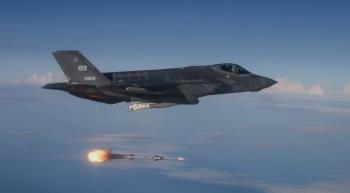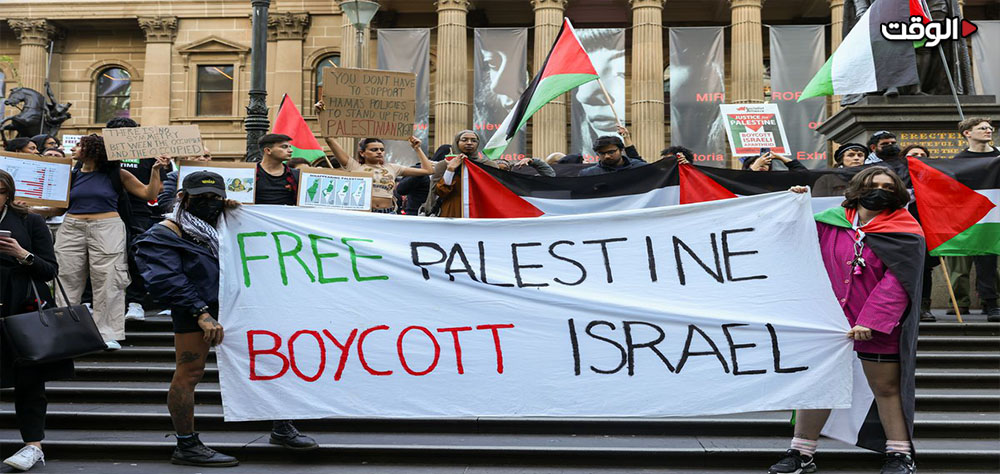Alwaght- The Israeli occupation has recently occupied Rafah border crossing, the only Gaza way out of Palestine, as Israeli tanks entered the city of Rafah in the south of Gaza Strip. Rafah was the last safe shelter of 1.5 million displaced Palestinians, and by occupying it, the Israeli regime has initiated a new cycle of massacre of civilians. Violence in Rafah is indescribable, and just contrary to the governments, the public opinion across the world, even in the West, react to the crimes in Gaza. European and American university students continue their protests and sit-ins and the UN Human Rights Council has demanded arms ban on the Israeli military. But does solely debating the sanctions on Tel Aviv in the Human Rights Council help check the Israeli crimes?
The answer is certainly no
The answer to the above-mentioned question is no. Unfortunately, despite the global reactions and protests and the Israeli loss of credibility on the world stage for its ongoing war crimes in Gaza, these reactions have so far failed to deter Tel Aviv from continuing its insane crimes in the besieged enclave, especially in Rafah. So, it seems that the more effective choice is boycotting this regime, a boycott many pro-Palestinian countries, on top of them Iran, had called for years ago. Iran's Foreign Ministry has recently officially called for boycotting the Israeli regime in response to the barbarous crimes in Gaza.
What kind of boycott?
The pro-Palestinian campaign, which is an active movement in the US and Europe and whose members are mostly pro-Palestinian students of various nationalities, is among NGOs that has been emphasizing the global boycott of Israel for a long time. This non-governmental and international movement last month in response to Israel's genocide machine in Gaza by forming a coalition of global human rights activists proposed boycotting fuel supplies to Israel in order to mount pressure on Tel Aviv.
The call for ban on fuel supplies to Israel focuses on four key demands: Stopping energy exports to Israel, stopping Israeli energy imports, stopping activities in oil and gas extraction projects, and stopping cooperation with Israeli energy companies in other regions.
Ban on Tel Aviv in these four areas can deal a heavy blow to the Zionists.
Why is fuel boycott effective?
There are persuasive reasons that show a fuel ban can be influential. Over the past 7 months, the decision of the Yemen to impose a naval blockade on Israel in solidarity with the Palestinian people hit the most important artery of global oil and gas trade and had an undeniable effect on Israeli regime. The move forced oil and gas majors including BP and Shell to halt all shipments through the Suez Canal, further disrupting the global market by keeping 35 million barrels of oil at sea. Currently, due to the operations of the Yemeni forces, Israel is facing a serious challenge to import energy from the Red Sea.
In this situation, if anti-Israeli boycott in the field of energy in non-maritime routes and from other companies also comes to fruition, Israel will face an all-out boycott.
How can anti-Israeli energy boycott be implemented?
Concerning implementation of the anti-Israeli boycott in energy area, several practical ways can be mentioned. Over the past two months, labor unions in Colombia have demanded their government to stop mining coal for export to Israel, and port workers in the country have also refused to load goods destined for Israel.
In Turkey, the civil activists have called for shutting down terminals from which 60 percent of crude oil Israel needs is sent to Israeli Ashdod port. This oil is provided by Azerbaijan. Also, if Brazil, which is another key supplier of Israel's crude oil and is now among Israel's fiercest critics in the Gaza war, imposes an oil embargo, Israel energy supplies will undergo a critical condition.
Also, the pro-Palestinian protests call on big companies to stop their joint projects with Israeli regime. Over the past decade, Israeli regime has become a major gas producer and exporter. It exports the gas it produces from Palestinian waters to Jordan, Egypt, and recently European Union.
If the contractors withdraw from these projects, Israel will also face a structural crisis for gas supply. At least 12 American and Western companies received permits for gas exploration off the coast of Gaza in October 2023, and now the pressure of human rights activists is on these companies. The companies include BP, Eni, and Dana Petroleum. These companies have actually violated international law, because part of the gas extraction is done in waters that are off the coast of Gaza and are recognized by the UN as occupied territories.
EU, an accomplice to Israeli violation of international laws
The interesting point is that a major part of Israeli gas imports are to the European Union as this bloc is considered as the buyer of a "considerable" amount of gas produced from occupied Palestinian coasts. Ships carrying LNG produced from the coast of Gaza regularly dock in Belgium, Wales, Marseille, Tuscany, and other destinations. Although this gas export is illegal, the EU has not yet taken any action against it. Meanwhile, European human rights activists are demanding to stop buying gas from Israel.
If the rights activists arrange sit-ins in the coasts and block docking of these ships, this ban will impose costs on the Israeli war machine. That is why currently part of focus of the civil community and human rights activists is on halt of buying Israeli gas, a pressure that if continues, it can undoubtedly take its toll on the Israeli massacring machine.



























